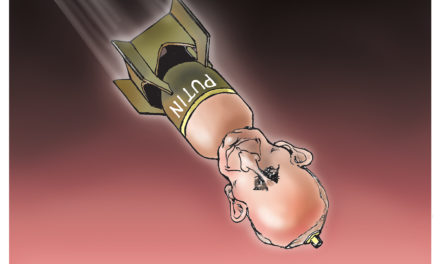Some major cities, notably Portland, OR, and Minneapolis, have traced much of their competitive success to their multi-county taxation authority. In these places, rather than joint taxing being a divisive force, it is a unifying force that led local governments to work together, rather than see themselves as enemies and competitors.
If such taxing authority here could include the North Mississippi counties of the Memphis MSA, it would be truly revolutionary (it would take the help of the Mississippi Legislature), attracting national attention for its creative thinking on funding public services. Most of all, to the delight of workers living outside of Shelby County, it would take off the table the payroll tax as the preferred funding source for regional services and replace it with multi-county taxing that gives North Mississippi a voice in what the revenues are used for. It’s a much more politically palatable option for non-Shelby Countians.
The existing tax system is hopelessly outdated, because it is set up in a way that presumes that every jurisdiction is self-contained and its interests are walled off from its neighbors. But in the real world, things work altogether differently.
In truth, the entire region is a functioning whole. As we’ve written before, as a result, the activities that produce tax revenues – and the needs for them – have little geographic relevance to the distribution of those taxes. That’s why we’ve advocated more rationality in the current tax system to define once and for all what’s a municipal service – whether we live in Memphis or Millington – and what’s a regional (or county) service, and to put the services on the appropriate tax base. For example, if schools are countywide, all educational costs should be placed on the countywide tax base, that of Shelby County Government, cutting the tax rate of Memphians by a significant amount. Also shifted to the regional tax base are services funded now by the City of Memphis but enjoyed by the entire region — museums, the zoo and downtown amenities.
What happens when there is no rationality and no imperative for regional cooperation is the competitive attitude that exists here today. Regional economic development officials may repeat all the platitudes about regional cooperation in op-ed pieces printed in The Commercial Appeal, but behind the smiles is a cutthroat competition on all sides that lies at the heart of the relationship that no amount of rhetoric can gloss over.
The consequences of multiple jurisdictions competing over a finite tax base as it does today – such as Collierville’s pursuit of another huge shopping center that is unjustified in the marketplace – ends up as a net loss for the region. It results in zoning of commercial and retail property designed to create optimal taxes, rather than the optimal community, and in the end, it inevitably erodes the overall quality of life for the region.
There is no such thing as winners and losers in such a competition. It is only about “today’s winners,” because such policies eventually will result in shopping centers springing up somewhere else and choking off the one booming in Collierville today. And of course, the biggest loser is the urban center. In the end, it’s the flight of revenues that most devastates Memphis, and in the end, this leads to public policies that see public subsidies like PILOTs as the answer to thwarting more financial loss.
This vicious cycle can be broken with a regional way of pooling taxes, which are then reallocated throughout the area. This helps break the mismatch that exists between the social needs and the taxes to address the needs, it helps to remove the incentives that spur on sprawl and it helps to end the intergovernmental fight for scarce public revenues.
When it comes to tax-sharing arrangements, conventional wisdom should be set aside. In Minneapolis-St. Paul, while the suburbs subsidized the central cities 30 years ago, it reversed later when older suburbs were in decline and needed help.
The Metropolitan Council in the Minneapolis-St. Paul seven-county region uses its tax-sharing authority to reduce the disparity between rich and poor jurisdictions. The revenues for the Council come from all governments placing 40 percent of the growth of their commercial and industrial property tax base into a regional pool, and this amount is then redistributed on a per capita basis.
From the pool, several hundred million dollars a year is redistributed, and in some years, Minneapolis – with a strong downtown and residential areas – is a net contributor to the fund, which focuses on regionwide priorities like public transit and light rail, parkland, water quality and smart growth.
Meanwhile, in Portland, the Metropolitan Regional Government administers programs in a three-county, 24-city region. Born from the region’s environmental ethos, the government today coordinates land use and transportation. However, equally important, it helps to pay for regional services like the convention center, performing arts center, stadium, exposition center and regional parks.
The innovative tax policies of Portland and Minneapolis/St. Paul did not just happen. They both came about because of entrepreneurial leadership by state government, which passed the legislation that allowed this unique approach to regional problem-solving to exist in the first place. But first, state officials need some leadership from here, and it would seem that Shelby County Mayor A C Wharton – as chair of MPO, as head of the Homeland Security region, as the head of the largest regional government and as the untiring proponent of new tax policies – would take up the mantle for a new look at taxes. As we’ve said before, the energy of the mayor and our community would be better spent restructuring our tax system than chasing new revenues sources such as development fees that are merely band-aids on a system that is bleeding to death.
It’s now been pointed out to state officials that Tennessee has 10 regions. It’s time for their help, and a first step is to give each region the authority to set up a regional tax-sharing system that inspires regional thinking and action. Now, who has the political courage to try to get it on the public agenda?




